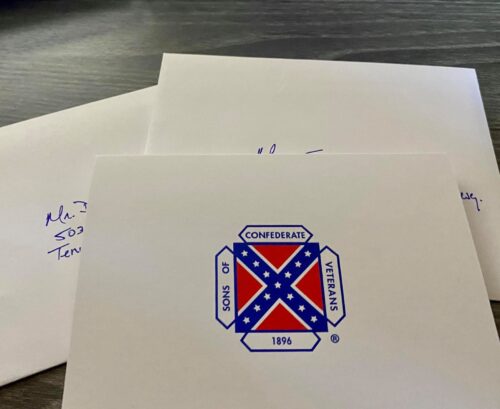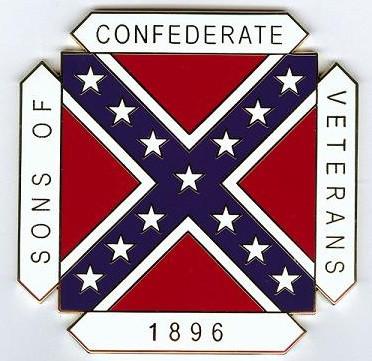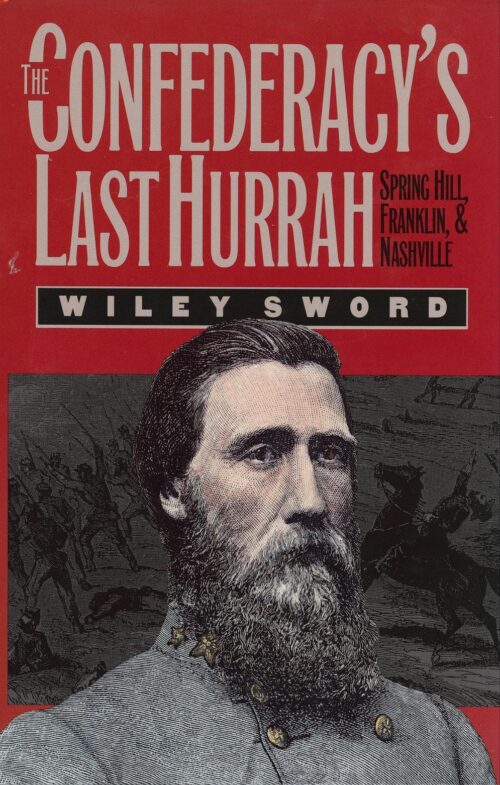-
Sale!
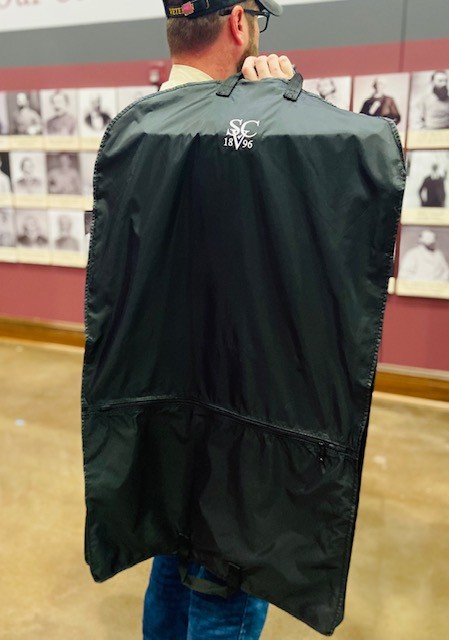 This high quality garment back features the SCV 1896 Logo and comes with 2 heavy duty metal hangers. This bag is perfect for the person constantly on the go.
This high quality garment back features the SCV 1896 Logo and comes with 2 heavy duty metal hangers. This bag is perfect for the person constantly on the go. -
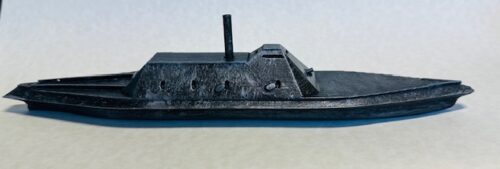
 Proudly handcrafted and made in the USA! These detailed scale models would make a great addition to any War Between the States collection. Each one is individually packaged with a short description. Sizes: CSS Tennessee (1/225 scale) 11"L x 2.5"W CSS Arkansas (1/225 scale) 8.5"L x 1.75"W H.L. Hunley Submarine (1/72 scale) 8"L x 1"W Brooke Rifle (1/35 scale) 5"L x 1.5"W
Proudly handcrafted and made in the USA! These detailed scale models would make a great addition to any War Between the States collection. Each one is individually packaged with a short description. Sizes: CSS Tennessee (1/225 scale) 11"L x 2.5"W CSS Arkansas (1/225 scale) 8.5"L x 1.75"W H.L. Hunley Submarine (1/72 scale) 8"L x 1"W Brooke Rifle (1/35 scale) 5"L x 1.5"W -
 During the Civil War, few men had seen camels on the battlefield. But one Mississippi infantry marched into battle with Old Douglas, who served with the Bloody 43rd and died in the Siege of Vicksburg. The regiment became known as the Camel Regiment, and its soldiers carried memories of Old Douglas through the end of the war and until the end of their own lives. They went on to fight in fourteen battles, including Corinth, Vicksburg, Chickamauga, Atlanta, Franklin, Nashville and Bentonville before they surrendered at war's end. Author W. Scott Bell's fascination with the Camel Regiment began because his great-great-grandfather fought with them.
During the Civil War, few men had seen camels on the battlefield. But one Mississippi infantry marched into battle with Old Douglas, who served with the Bloody 43rd and died in the Siege of Vicksburg. The regiment became known as the Camel Regiment, and its soldiers carried memories of Old Douglas through the end of the war and until the end of their own lives. They went on to fight in fourteen battles, including Corinth, Vicksburg, Chickamauga, Atlanta, Franklin, Nashville and Bentonville before they surrendered at war's end. Author W. Scott Bell's fascination with the Camel Regiment began because his great-great-grandfather fought with them. -
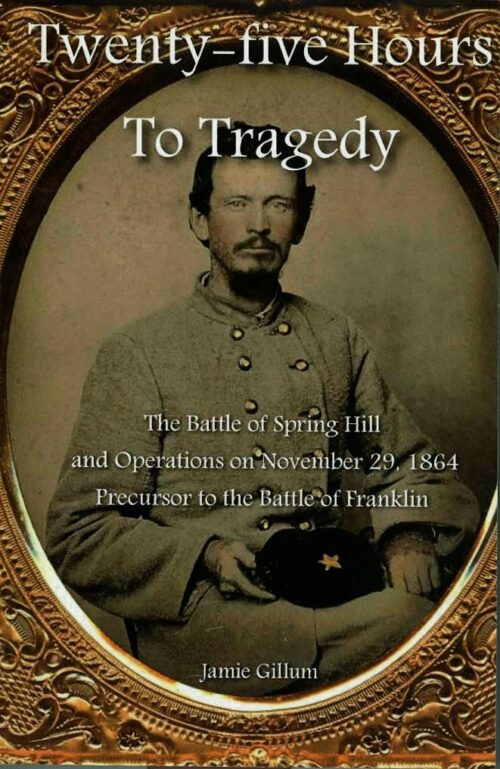 Only twenty-five hours after the Confederate Army’s arrival on the battlefield of Spring Hill, TN the decision to assault the heavily defended fortifications at Franklin was made. It was a decision that would not have to be made had the Confederates followed through with their plans at Spring Hill. Follow the armies in their race to Spring Hill, the combat there and the critical decisions that led to the Federal escape and a total Confederate command breakdown in the most devastating blunder of the American "Civil War."
Only twenty-five hours after the Confederate Army’s arrival on the battlefield of Spring Hill, TN the decision to assault the heavily defended fortifications at Franklin was made. It was a decision that would not have to be made had the Confederates followed through with their plans at Spring Hill. Follow the armies in their race to Spring Hill, the combat there and the critical decisions that led to the Federal escape and a total Confederate command breakdown in the most devastating blunder of the American "Civil War." -
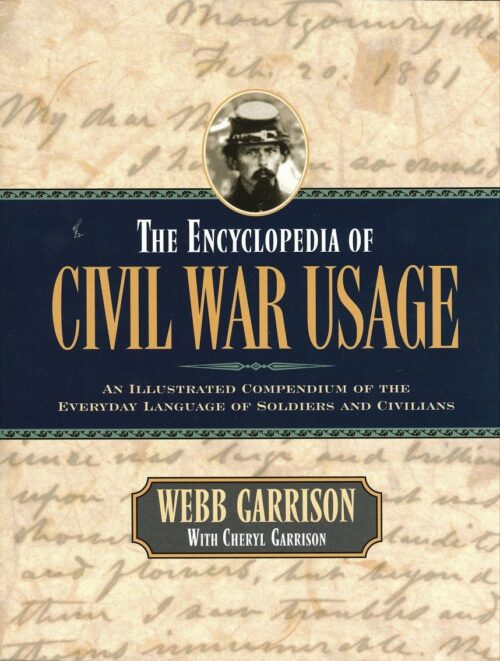 Gumps! Wharf Lice! Ditch Hunters! Though it’s reasonably clear that those terms are insults, few people today have any idea what they mean. Like much of the language used in the 1860’s, these expressions have vanished from everyday speech. This comprehensive volume will delight the historian, the writer, and the reenactor. Now in paperback.
Gumps! Wharf Lice! Ditch Hunters! Though it’s reasonably clear that those terms are insults, few people today have any idea what they mean. Like much of the language used in the 1860’s, these expressions have vanished from everyday speech. This comprehensive volume will delight the historian, the writer, and the reenactor. Now in paperback. -
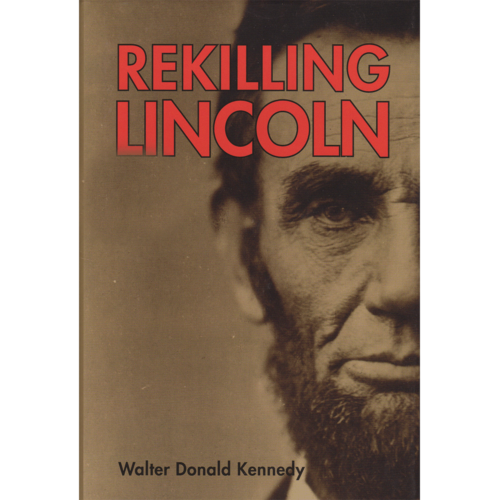 Unveil the little-known dark side of America’s sixteenth president with this shocking biography. Using speeches and writings by the founding fathers, constitutional scholars, and even Lincoln himself, Walter Donald Kennedy lays out clear and convincing arguments that many of the cherished “facts” about the Great Emancipator aren’t facts at all! Surprising tidbits include Lincoln’s atheistic tendencies, friendship with Marxist leaders, and complete disregard for the constitutional legality of secession. Get ready to relearn the history of the president who shaped the United States of America into the nation it is today―for better or, as Kennedy suggests, for worse.
Unveil the little-known dark side of America’s sixteenth president with this shocking biography. Using speeches and writings by the founding fathers, constitutional scholars, and even Lincoln himself, Walter Donald Kennedy lays out clear and convincing arguments that many of the cherished “facts” about the Great Emancipator aren’t facts at all! Surprising tidbits include Lincoln’s atheistic tendencies, friendship with Marxist leaders, and complete disregard for the constitutional legality of secession. Get ready to relearn the history of the president who shaped the United States of America into the nation it is today―for better or, as Kennedy suggests, for worse. -
 In 1865, Karl Marx praised Lincoln as a “single-minded son of the working class.” This book examines why Marx—and other socialists—supported Mr. Lincoln’s War and notes his negative influence on modern society. Firsthand accounts and insight from notable historians shatter contemporary views of both the sixteenth president and the early Republicans.
In 1865, Karl Marx praised Lincoln as a “single-minded son of the working class.” This book examines why Marx—and other socialists—supported Mr. Lincoln’s War and notes his negative influence on modern society. Firsthand accounts and insight from notable historians shatter contemporary views of both the sixteenth president and the early Republicans. -
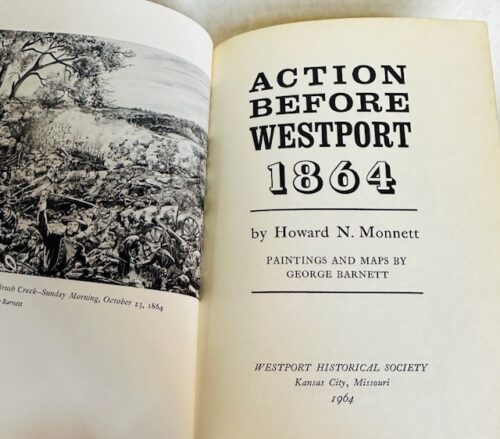
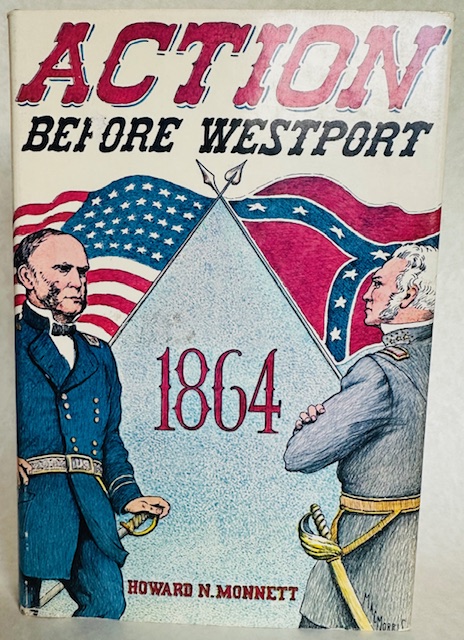 ONLY ONE COPY AVAILABLE - EXCELLENT CONDITION! Hardback. The military events surrounding the frontier village of Westport, Missouri, during the autumn of 1864 were part of a Confederate raid that exceeded any Civil War cavalry raid. The climax of a last-ditch Confederate invasion of Missouri, the battle ended forever the bitter fighting that had devastated the Missouri-Kansas border. First published more than thirty years ago and now available with a new introduction and notes that update the text, Action Before Westport presents the only full account of that most unusual and daring Civil War battle. In addition to incorporating official records, newspaper accounts, letters, diaries, journals, and privately printed records, Monnett consulted several previously undiscovered manuscripts, two of them the work of key Confederate generals in the raid. The result is a classic work that is both immensely readable and impressive in its documentation.
ONLY ONE COPY AVAILABLE - EXCELLENT CONDITION! Hardback. The military events surrounding the frontier village of Westport, Missouri, during the autumn of 1864 were part of a Confederate raid that exceeded any Civil War cavalry raid. The climax of a last-ditch Confederate invasion of Missouri, the battle ended forever the bitter fighting that had devastated the Missouri-Kansas border. First published more than thirty years ago and now available with a new introduction and notes that update the text, Action Before Westport presents the only full account of that most unusual and daring Civil War battle. In addition to incorporating official records, newspaper accounts, letters, diaries, journals, and privately printed records, Monnett consulted several previously undiscovered manuscripts, two of them the work of key Confederate generals in the raid. The result is a classic work that is both immensely readable and impressive in its documentation. -
 From the authors of THE SOUTH WAS RIGHT! comes a new edition of what one historian calls one of the most important and original histories of the Southern people. PUNISHED WITH POVERTY tells the unvarnished story of the intentional policy of economic devastation and exploitation of the South which has affected all Southerners, both black and white, long after the close of the "Civil War" and "Reconstruction." In fact, the sad legacy of these punitive policies continues to this very day. The over-arching theme of Southern history is not Race, as is conventionally stated, but Poverty - poverty not due to the South's shortcomings but imposed on them by the system under which they live.
From the authors of THE SOUTH WAS RIGHT! comes a new edition of what one historian calls one of the most important and original histories of the Southern people. PUNISHED WITH POVERTY tells the unvarnished story of the intentional policy of economic devastation and exploitation of the South which has affected all Southerners, both black and white, long after the close of the "Civil War" and "Reconstruction." In fact, the sad legacy of these punitive policies continues to this very day. The over-arching theme of Southern history is not Race, as is conventionally stated, but Poverty - poverty not due to the South's shortcomings but imposed on them by the system under which they live. -
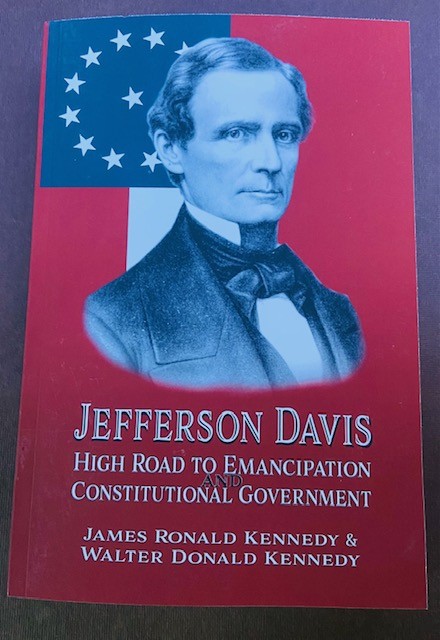 The latest book from the Kennedy brothers. Jefferson Davis was a proponent of the high road to emancipation. He looked to the day in which slaves would be prepared to live within and participate in a democratic society. He did more than advocate for the high road to emancipation - as this book documents, he practiced his belief in the ultimate emancipation of Southern slaves. Many of his former slaves left for posterity their testimony about their former master - a master who prepared them for freedom as self-sustaining members of society. The North's ruling elites justified their invasion, conquest, and occupation of the Confederate States of America by declaring that the South was fighting to preserve slavery and that secession was treason. After the unfortunate end of the War for Southern Independence, the United States arrested Jefferson Davis on charges of treason. Davis demanded a trial, yet the United States never brought Davis to trial - why? Were they afraid they would lose in court? Davis, and through him the South, was unjustly tried in the court of public opinion - a court controlled by the North's ruling elites. This book gives the defense that Davis and the South never had.
The latest book from the Kennedy brothers. Jefferson Davis was a proponent of the high road to emancipation. He looked to the day in which slaves would be prepared to live within and participate in a democratic society. He did more than advocate for the high road to emancipation - as this book documents, he practiced his belief in the ultimate emancipation of Southern slaves. Many of his former slaves left for posterity their testimony about their former master - a master who prepared them for freedom as self-sustaining members of society. The North's ruling elites justified their invasion, conquest, and occupation of the Confederate States of America by declaring that the South was fighting to preserve slavery and that secession was treason. After the unfortunate end of the War for Southern Independence, the United States arrested Jefferson Davis on charges of treason. Davis demanded a trial, yet the United States never brought Davis to trial - why? Were they afraid they would lose in court? Davis, and through him the South, was unjustly tried in the court of public opinion - a court controlled by the North's ruling elites. This book gives the defense that Davis and the South never had.




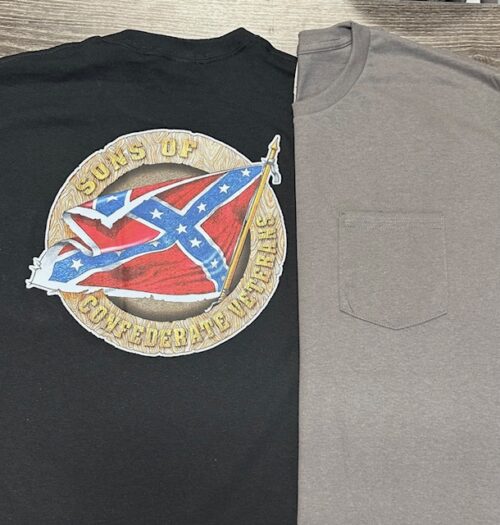
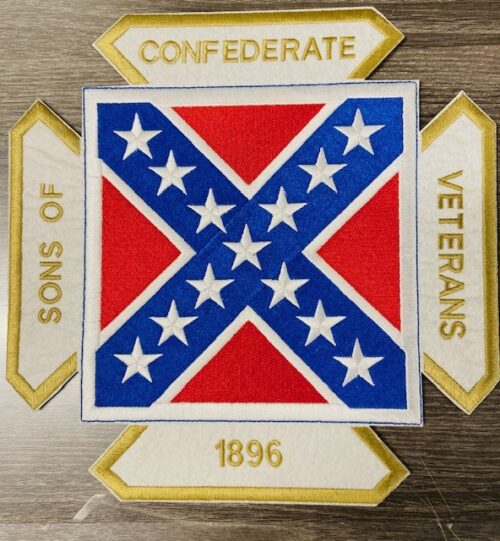
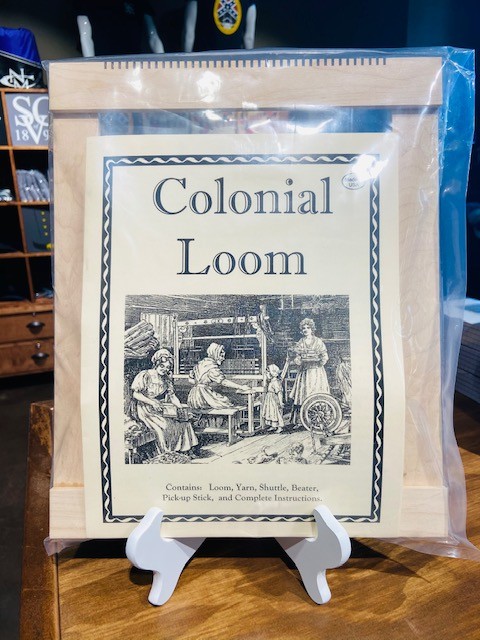
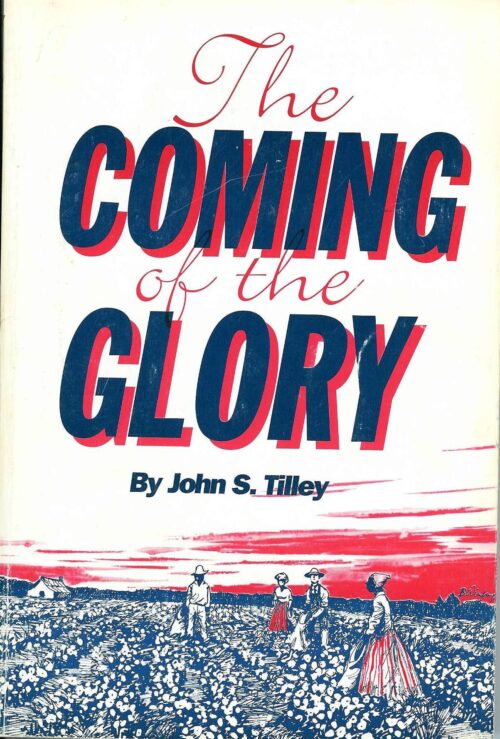

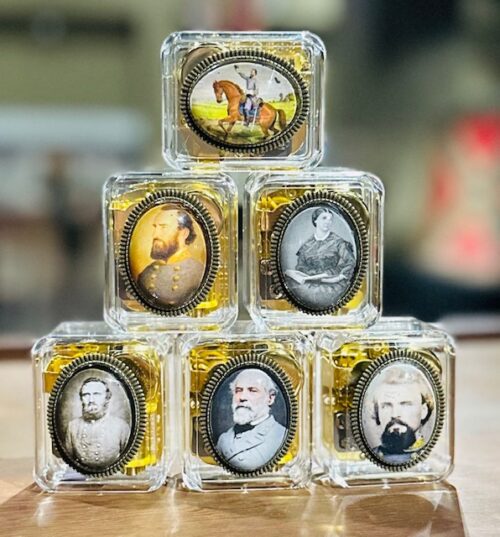
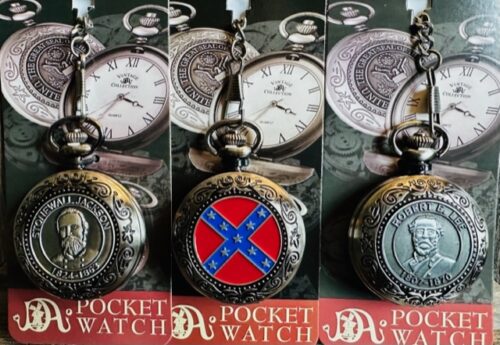
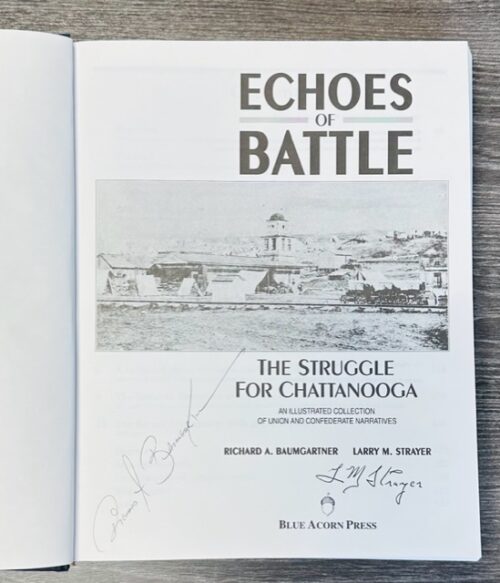

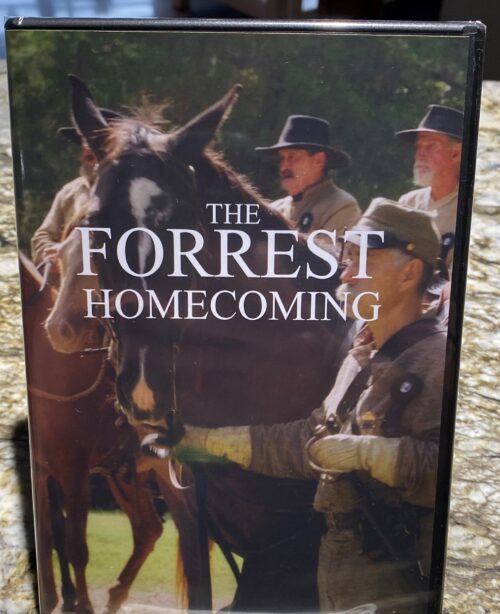

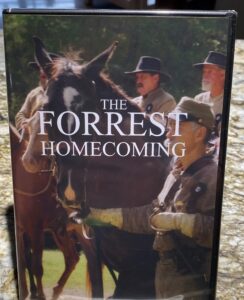 The documentary you've been waiting for. See how the entire Forrest saga unfolded, and how the SCV stepped up when called to action.
The documentary you've been waiting for. See how the entire Forrest saga unfolded, and how the SCV stepped up when called to action. 